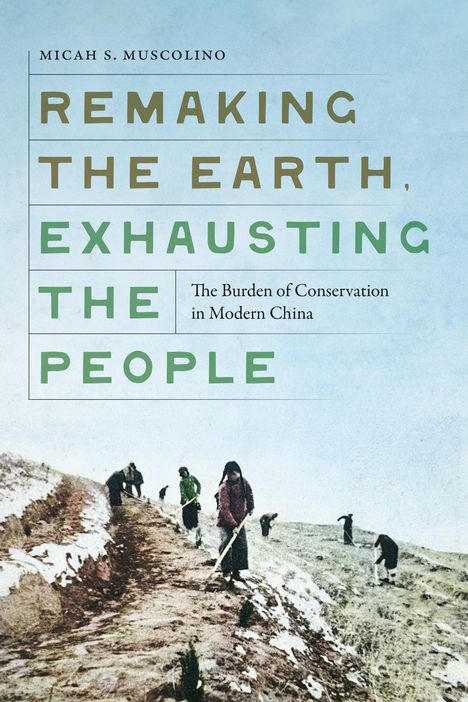Micah S Muscolino: Remaking the Earth, Exhausting the People, Kartoniert / Broschiert
Remaking the Earth, Exhausting the People
- The Burden of Conservation in Modern China
(soweit verfügbar beim Lieferanten)
- Verlag:
- University of Washington Press, 08/2025
- Einband:
- Kartoniert / Broschiert
- Sprache:
- Englisch
- ISBN-13:
- 9780295753980
- Artikelnummer:
- 12046431
- Umfang:
- 318 Seiten
- Gewicht:
- 399 g
- Maße:
- 228 x 152 mm
- Stärke:
- 22 mm
- Erscheinungstermin:
- 19.8.2025
- Hinweis
-
Achtung: Artikel ist nicht in deutscher Sprache!
Klappentext
State-led conservation transformed Gansu's landscape---rural communities bore the costs
From the 1940s to the 1960s, soil and water conservation measures transformed both the arid, erosion-prone environment of China's Loess Plateau and the lives of rural people. Remaking the Earth, Exhausting the People explores how the Chinese state imposed the burden of conservation on rural communities and how the communities navigated those demands. Weaving together archival research and oral history interviews, Micah S. Muscolino demonstrates that for the inhabitants of China's countryside, conservation programs became part of an extractive mode of accumulation that intensified labor demands and entailed loss of control over resources.
Muscolino recounts how changes to the physical environment played out in villages, on farms, and within households. His multitiered investigation uncovers the relationship between the forces of nature, Chinese state policies, and the embodied experiences of rural men and women. The book also highlights the contestations and compromises that the state's environmental interventions triggered in rural society. By illustrating how state-building and revolution in modern China altered human relationships with the natural world, Muscolino shows that examining everyday interactions with the environment is integral to understanding history from the perspectives of China's common people. He offers a timely reminder that environmental protection cannot come at the cost of marginalized communities' dignity, interests, or aspirations.


